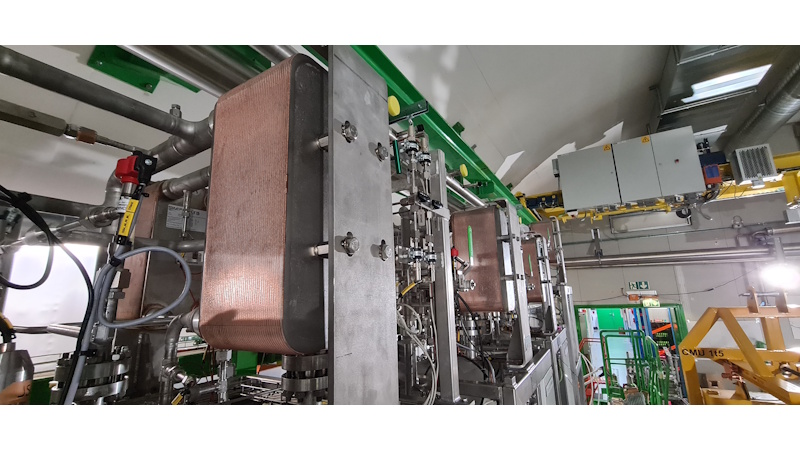CERN, the world’s leading particle physics laboratory, offers a unique range of particle accelerator facilities for scientists conducting groundbreaking research in fundamental physics. The ATLAS and CMS detectors are currently being upgraded for the High-Luminosity LHC program, which will result in higher levels of radiation.
SWEP developed the Q185H brazed plate heat exchanger (BPHE) by enhancing their existing B185 BPHE with a Q-pipe, creating the SWEP Q185H. In close collaboration with CERN engineers, SWEP adapted the Q185H to meet the specific technical requirements of CERN’s new CO2-cooling project. Each installation was precisely dimensioned to incorporate these robust units.
Both the SWEP B185 and Q185H BPHEs now serve crucial roles as CO2 superheaters and CO2 cascades within the upgraded cooling systems. The CMS and ATLAS installations rely exclusively on natural CO2, eliminating synthetic refrigerants entirely. The new detector cooling systems are scheduled to operate from 2030 through 2045.


